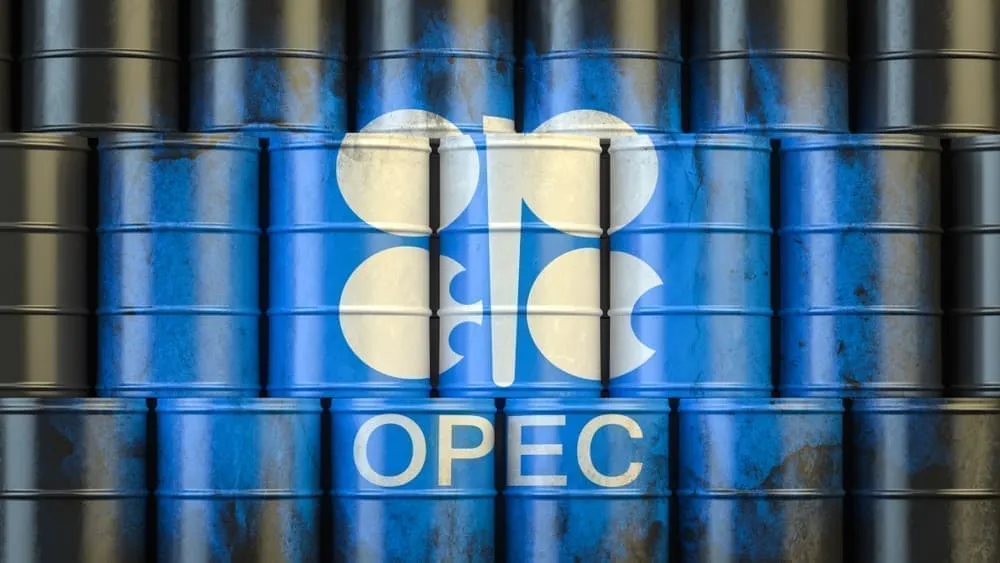It appears that OPEC+ was correct once more.
When Saudi Arabia and its partners stunned global oil markets earlier this month with additional supply cuts, they sparked a response from the White House and beyond. However, with Brent crude falling below $80 per barrel on Wednesday, wiping all the price gains since the announcement, the group's argument that the cutbacks were necessary to avert an excess is gaining credence.
"Riyadh would likely insist that prices would have been materially lower if they had not acted earlier this month," Helima Croft, head of commodity strategy at RBC Capital Markets LLC, said.
It's reminiscent of the previous round of OPEC+ cuts in October, which received criticism at first but grew to look foresighted when demand decreased and prices plummeted.
Fading Rally
Brent crude has returned to where it was before to the unexpected reduction.
Key OPEC+ members say that the new output cuts, which total more than 1 million barrels per day and go into force next month, were a necessary precautionary measure in reaction to signals of declining demand and excessive speculation.
This stance did not go over well with customers, as oil futures in London jumped 8% to $86 a barrel the day following the April 2 decision. The decision was deemed ill-advised by US President Joe Biden's administration, indicating more strains in relations with Saudi Crown Prince Mohammad bin Salman. The International Energy Agency warned that it would exacerbate consumer inflationary hardship and jeopardize the global economy.
Nonetheless, oil markets have gradually worsened in the three weeks since major members of the Organization of Petroleum Exporting Countries responded. Key signs in the Asian crude market have deteriorated as China, the world's largest oil importer, struggles to fulfill expectations following the epidemic. Profits in the oil refining industry have been declining in recent weeks, prompting corporations to contemplate reduced processing rates.
Meanwhile, investor morale has been harmed by persistent worries of a US recession, since rising interest rates boost the currency and reduce the attraction of risk assets such as commodities.
Brent fell below $79 per barrel on Wednesday, as the price differential between the oil benchmark's first two futures contracts shifted into a negative pattern known as contango for the first time since January.
There is still a chance that OPEC's detractors may be proven correct by the end of the year.
When demand heats up in the second half, global oil markets are projected to tighten, with OPEC's figures indicating an acute supply shortage of more than 2 million barrels per day. According to Goldman Sachs Group Inc. and JPMorgan Chase & Co., oil will reach $90 a barrel by the end of 2023.
"Looking at the price action, one could argue it was the correct move," but it's too early to tell, according to Helge Andre Martinsen, an analyst at DNB ASA in Oslo. "However, keep in mind that the fundamental oil balance shifts to deep undersupply in the second half of the year."
The Paris-based IEA has remained staunch in its criticism, with Executive Director Fatih Birol telling Bloomberg television on Wednesday that the world's economy is in "very fragile" shape.
Significant uncertainty is also presented by OPEC+ member Russia, which has pledged to cut output by 500,000 barrels per day in response to sanctions related to its war in Ukraine but has so far maintained exports fairly constant.
With the economy continuing in turmoil as a result of persistent inflation and rising interest rates, Saudi Arabia's choice to reduce has been justified, just as it was last year.
Biden previously stated that the kingdom will suffer "consequences" for pushing a supply cut of oil exceeding 2 million barrels per day. Riyadh was accused of collaborating with Russia to raise prices, so assisting Moscow in financing the Ukrainian conflict.
However, in the months since, crude prices in London have fallen from about $100 per barrel to just over $76 per barrel, and Saudi Energy Minister Prince Abdulaziz bin Salman has warned that OPEC+ will cause additional "havoc" in the oil market.
The issue now is whether OPEC+ would advocate for more cuts at its next production review meeting.
"OPEC will wait until its meeting in June to assess the situation," said Gary Ross, a former oil expert turned hedge fund manager at Black Gold Investors LLC. "By then, if prices don't recover into the $80s for Brent — which they should — they may have to take another bite out of the apple."

Subscribe to our newsletter!
As a leading independent research provider, TradeAlgo keeps you connected from anywhere.








